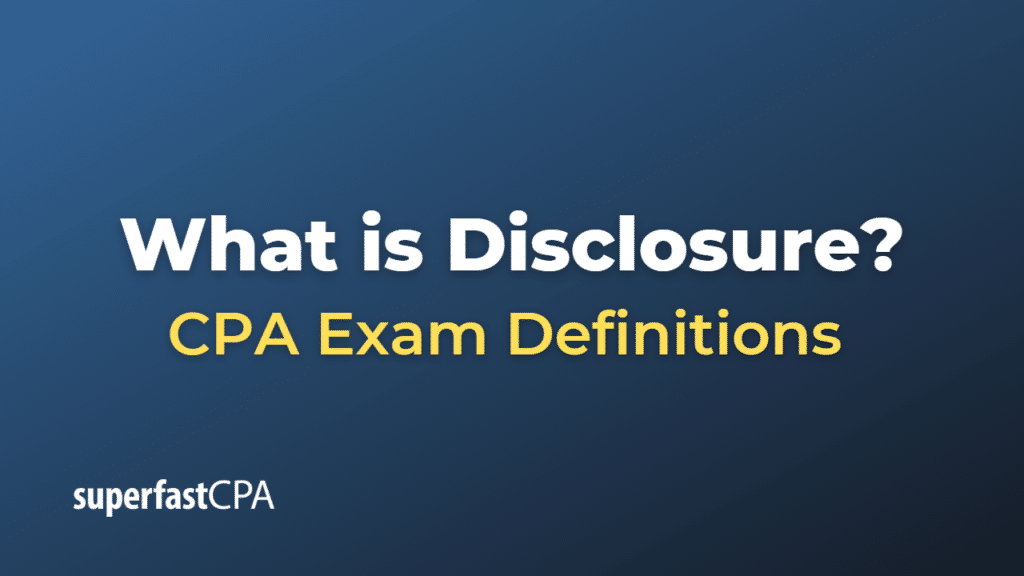Disclosure
Disclosure is the act of making information known or public. In the context of finance and business, disclosure refers to the requirement for companies to provide accurate and reliable information about their financial position, performance, changes in financial position, and other relevant business activities.
These disclosures are generally done through financial statements, notes accompanying the financial statements, quarterly and annual reports, press releases, and filings with regulatory bodies. The goal of financial disclosures is to provide transparency and allow shareholders, potential investors, lenders, and other stakeholders to make informed decisions.
The requirements for financial disclosure are typically established by regulatory bodies. For example, in the United States, publicly traded companies are required by the Securities and Exchange Commission (SEC) to file regular financial disclosures, such as annual reports (Form 10-K) and quarterly reports (Form 10-Q).
Moreover, companies also disclose non-financial information that can significantly impact the company’s reputation and operations. This may include data on environmental impact, social responsibility initiatives, or governance practices.
Notably, disclosures need to be complete, accurate, and timely. Inadequate disclosure or non-disclosure of material information can lead to legal consequences and damage to a company’s reputation.
Example of Disclosure
Let’s use a publicly traded company as an example, let’s say “TechGear Corporation”.
Example of Financial Disclosure:
As per regulatory requirements, TechGear Corporation prepares and publicly files its Annual Report (Form 10-K) and Quarterly Reports (Form 10-Q) with the U.S. Securities and Exchange Commission (SEC). These reports include detailed information about the company’s:
- Financial condition: This includes the balance sheet showing the company’s assets, liabilities, and shareholder equity.
- Results of operations: This includes the income statement showing the company’s revenues, costs, expenses, and profits or losses.
- Cash flows: This includes the cash flow statement showing the company’s cash inflows and outflows from operating, investing, and financing activities.
- Risk factors: This includes a discussion of any significant risks that could potentially impact the company’s financial performance.
- Management’s Discussion and Analysis (MD&A): This includes management’s perspective on the company’s financial performance, trends, risks, and outlook.
In addition, TechGear Corporation discloses any significant events that could impact its financial condition or operations in real-time through an 8-K filing with the SEC.
Example of Non-Financial Disclosure:
TechGear Corporation also discloses its efforts related to corporate social responsibility and environmental, social, and governance (ESG) factors. This might include information on the company’s:
- Environmental impact: This includes details about the company’s energy use, waste production, greenhouse gas emissions, and efforts to reduce its environmental footprint.
- Social initiatives: This includes information about the company’s labor practices, employee health and safety measures, community outreach programs, and charitable contributions.
- Governance practices: This includes information about the company’s board of directors, executive compensation policies, and efforts to prevent corruption and ensure ethical behavior.
These disclosures are often included in the company’s annual report, as well as in a separate corporate social responsibility or sustainability report. They may also be shared through press releases or updates on the company’s website.













